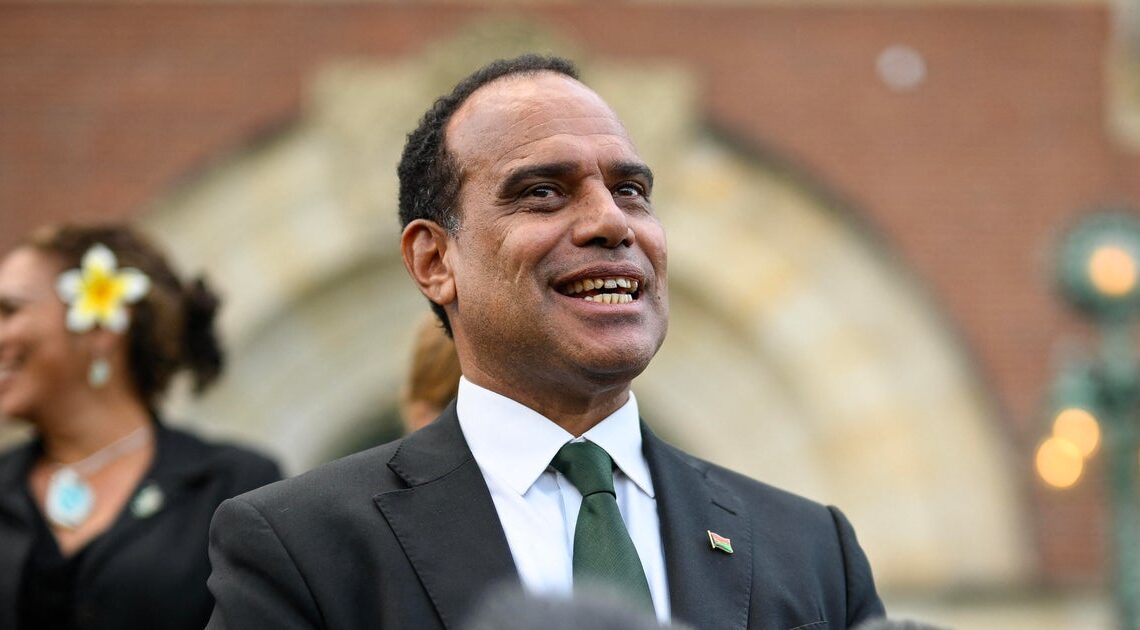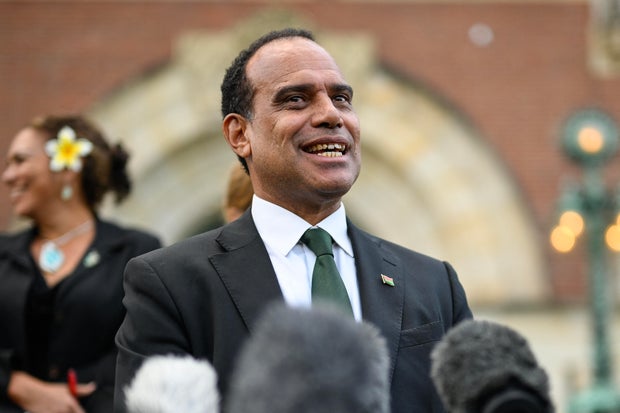
U.N. court says polluters can be held responsible for greenhouse gas emissions
23. July 2025
The Republic of Vanuatu, a South Pacific island nation of 320,000 people, has led a growing effort since 2021 to compel the United Nations to answer one of the most crucial legal questions related to climate change: Can polluters be held legally accountable for the harm they’ve caused as a result of releasing large amounts of greenhouse gas emissions into the atmosphere?
The short answer is: yes. Fifteen judges who make up the International Court of Justice, located at The Hague in the Netherlands, issued a unanimous advisory opinion saying countries “have a duty to prevent significant harm to the environment by acting with due diligence and to use all means at their disposal to prevent activities carried out within their jurisdiction or control from causing significant harm to the climate system and other parts of the environment.”
The court further stated that existing environmental treaties, international human rights law, and participation in the United Nations further compels countries to do everything possible to protect the climate. Any wrongful act that violates these agreements must be immediately stopped, followed by “full reparations” and compensation made to the injured parties.
“Vanuatu looks forward to collaborating with other States on implementing the Court’s decision,” Ralph Regenvanu, Vanuatu’s minister of climate change and environment, said in a statement. “A victory in the world’s highest court is just the beginning. Success will depend on what happens next through coordinated efforts across diplomacy, politics, litigation, and advocacy to turn this moment into a true turning point.”
John Thys/AFP via Getty Images
For Vanuatu, a country that comprises 83 islands with a combined size roughly the same as Connecticut, the decision is monumental. Officials said the country was responsible for less than 0.0004% of global cumulative greenhouse gas emissions between 1962 and 2022, but experiences disproportionate impacts of climate change.
In addition to its average temperature rising, Vanuatu is seeing more severe and intense tropical cyclones. In 2023, it was hit by three cyclones that were Category 4 or higher, impacting nearly 200,000 residents and costing the country more than $400 million in economic damages. The western tropical Pacific Ocean has risen 4-6 inches between 1992-2020, which is particularly dangerous for the country as much of it is low-lying and vulnerable to erosion. All of this, along with increased precipitation and periods of drought, has caused entire communities to be relocated by the government, and the impacts are anticipated to grow more severe.
“Today, the world’s smallest countries have made history,” Vishal Prasad, director of Pacific Island Students Fighting Climate Change, said in a statement. “The ICJ’s decision brings us closer to a world where governments can no longer turn a blind eye to their legal responsibilities. It affirms a simple truth of climate justice: those who did the least to fuel this crisis deserve protection, reparations, and a future. This ruling is a lifeline for Pacific communities on the frontline.”
While the advisory opinion is not legally binding, environmental organizations and law experts are hopeful that the ruling can set a legal precedent for the thousands of climate change cases around the world that are attempting to hold larger governments and companies accountable for climate pollution.
“This opinion can serve as a compass for countries who are thinking about how to prioritize justice and prioritize the safety of their citizens while also being in compliance with international law,” said Carly Phillips, a research scientist with the Union of Concerned Scientists who worked with the legal teams of seven countries that submitted supporting statements to the court asking for the opinion.
The United States does not accept the jurisdiction of the International Court of Justice, but it did submit a written statement in March 2024 and participated in oral arguments, arguing that members of the United Nations Framework Convention on Climate Change and the 2015 Paris Agreement already compel signatories to address climate change impacts and protects them from accountability for harming the climate.
But Vanuatu’s Prime Minister Jotham Napat has been skeptical of the power of the U.N. convention and the Paris Agreement, saying in a statement that neither are “generating the actions the world urgently needs fast enough.” He believes a favorable opinion from the court could “support vulnerable nations in securing climate finance, technology, and loss and damage support.”
The court addressed this concern in its opinion and dismissed the legal argument that environmental treaties, like the Paris Agreement, protect polluters from accountability. In fact, the court emphasized that the Paris Agreement imposes strong mitigation and adaptation obligations on all parties and requires them to respond to loss and damages from climate change.
Given that the United States is one of the largest emitters of greenhouse gases in the world, according to international data, the decision to hold large emitters responsible might be concerning, but President Trump withdrew the United States from the Paris Agreement for a second time earlier this year.
The court called out countries like the United States, saying that nations that are not party to climate treaties but are members of the United Nations must meet “equivalent obligations under customary international law.”
The impact of the opinion remains to be seen. “It’s likely not going to have a lot of influence in the United States,” said Maria Antonia Tigre, director of global climate litigation at the Sabin Center for Climate Change Law at Columbia University.
Tigre said that while the decision may not influence domestic court cases in the U.S. and the country can’t be sued under the decision, the real impact could be seen internationally. A court in Brazil, for example, could cite the opinion in one of the 135 current climate change cases making its way through its domestic court system.
The U.N. court also pointed out that corporate polluters are open to the advisory opinion, especially if they are based abroad in a country that is party to the U.N. and climate treaties. “Countries have an obligation to put an end to wrongful acts,” said Tigre. “If a country is found to be in breach by giving permits to an oil company, they may need to revoke those permits.”
Representatives for Vanuatu said the next step is to take the decision back to the U.N. General Assembly to pursue a full resolution to support the implementation of the decision. The opinion will be a primary focus when U.N. countries meet in November for the next climate change conference, known as COP30, in Brazil.
